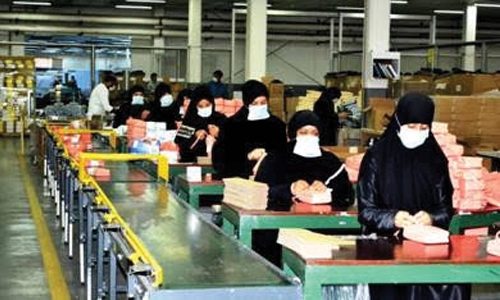WestPoint ups its stake, but others are still stuck
WestPoint Home, a Bahrain-based textile manufacturer and exporter, will be enhancing its production capabilities soon with a US$9 million investment. The new investment will help the company increase its spinning capacity by 38 per cent, according to Normand Savaria, President and CEO, WestPoint.
The company manufactures different types of bed sheets for distribution in other countries, predominantly to US under the Free Trade Agreement (FTA) with Bahrain.
Trade Preference Level (TPL) concessions, which have been granted to Bahrain under the FTA, are set to expire by July 2016. Possible TPL expiry had created consternation among textile exporters in Bahrain, as many of them needed the duty free access to US to ward off competition from low cost countries or countries with geographical proximity to
US.
American Chamber of Commerce and Industries ministry have been trying hard to win an extension for TPL, but various representations to US failed to generate an extension.
WestPoint is less reliant on TPL as they are textile manufacturers unlike other manufacturers who produce garments.
Earlier, the company used to produce 60pc of its yarn requirements in the Kingdom itself.
It had two spinning plants, weaving plant with 244 looms, and state of the art dyeing and printing facility.
With the new investment, more machines will be installed, the order for which has been placed two months back, and maximum yarn requirement for producing bed sheets will be made in Bahrain, according to its General Manager, Aziz Ahmad. “Spinning more yarn in Bahrain will decrease lead times, increase flexibility and will, along with other initiatives help to mitigate the impact of the anticipated TPL expiration mid 2016 and will allow the company to continue to import Bahrain manufactured textile product into the USA duty free,” Savaria added.
The garment manufacturers like MRS and Ambattur are not in a manoeuvrable position like WestPoint, sources told DT News.
Their requirements change in line with the fashion trends in the US. It is not possible for these companies to change the production facility with the change in fashion requirements and thus have to rely on imports.
This reliance on imports pushes out garment manufacturers from the duty free access to US markets, as the agreement stipulates that the yarn used in textile manufacturing can be sourced from any country, but neither of the two countries is allowed to source processed yarn and export among themselves.
TPL provides a concession for up to 65 million square metres of Bahrain’s textile production for first the ten years of the FTA, a period that will end by July 2016.
Duty advantage, because of TPL, ranges between 18pc to 33pc, according to sources. The absence of this advantage and the high labour cost will force garment manufacturers to other destinations.
DT News had earlier reported about the possible loss of 6000 textile jobs in the Kingdom, as TPL-reliant textile companies are setting up facilities in countries like Jordan, Oman and Egypt.
The garment manufacturers had noted that an extension of TPL by another ten years will give them confidence to double their investments and create thousands of more jobs.
Related Posts

